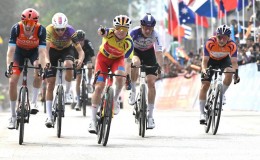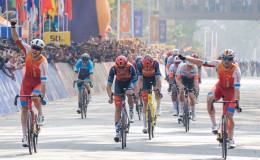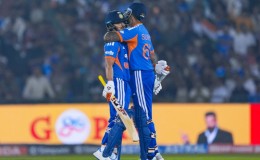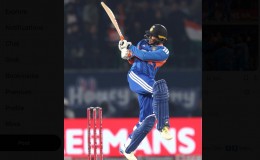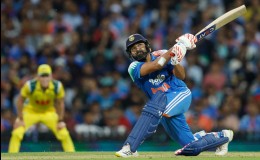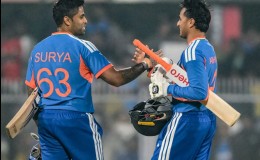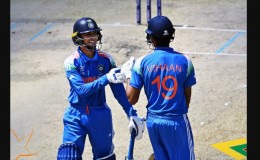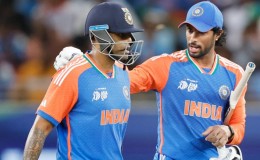“Playing against Roger Federer is like you are playing against two at a time,” says the Sergiy Stakhovsky, who defeated the seven-time Wimbledon Champion on Wednesday. He outplayed the defending champion 6-7 (5/7), 7-6 (7/5), 7-5, 7-6 (7/5) in the second round
This turned out to be the worst grand slam exit for Federer since a first round exit at the 2003 French Open and the defending champion's earliest Wimbledon defeat since a second round loss in 2002. He expressed how much this win matters, especially when he himself wasn’t expecting it.
Stakhovsky went onto shower his praises on Federer and was quoted by Times of India saying, "Our sport is Roger Federer. He's the greatest player we had. He's the biggest name we had and we still have, thank God. And I think as a person he showed us that you can be a decent man achieving a lot of things and still be a person who everybody admires."
Ukrainian was quoted by The Hindu saying, “When you come here, on the cover of the Wimbledon book is Roger Federer. You're playing the guy and then you're playing his legend, which is following him because he won it seven times.”
He added, “You're playing two of them. When you're beating one, you still have the other one who is pressing you. You're saying, Am I about to beat him? Is it possible?" For world number 116 Stakhovsky, it was a first win over a top 10 opponent in 21 attempts.”
He expressed that mastering the art of serve-and-volley was his biggest strength against Federer. He was quoted by Hindustan Times saying, “Well, you can't really keep up with Roger on grass on baseline rallies. It's just impossible, I would say, especially here. He feels the grass. He feels the slice. He can do whatever he wants with the ball.”
"The only tactics I have is press as hard as I can on my serve and come in as much as I can. The shorter it is, the less rhythm he got. I think I was successful enough that he didn't get into the returning rhythm, only somewhere in the middle of the fourth set did he find it," he concluded.

